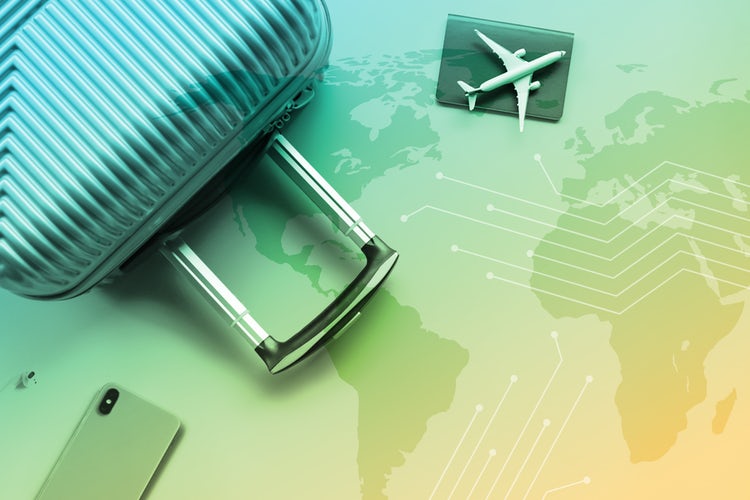Reprinted from Marketing week
The global coronavirus pandemic impacted nearly every industry on Earth, but few as intensely as travel and hospitality.
With cities locked down, borders closed and mask-wearing people limiting exposure to each other, it’s not surprising that airlines, hotels and travel experience providers all saw staggering drops in their businesses during 2020. According to the World Travel & Tourism Council, the travel and hospitality sector lost nearly $4.7 trillion last year. Yikes.
But with vaccination programs beginning to make an impact globally, these industries are poised for a potential rebound. People are desperate to see far-away relatives, reconnect with business contacts and just get a break from their everyday lives. To turn things around, the travel industry needs to build customer confidence, effectively communicate messaging and develop new strategies for a post-pandemic world.
To help these brands plot a path forward, comprehensive customer engagement platform Braze – in collaboration with data partners Skyscanner and Apptopia – took a deep dive into the travel space to explore consumer sentiment, better understand the shifting market and create best practices for travel brands moving forward. And in the process, we discovered some remarkable changes in the way people are approaching travel.
Customers who are coming to the table already apprehensive and nervous need to be soothed while they’re informed.
Travel apps are also seeing an increase in ‘window shopping’ – that is, users bookmarking destinations and checking prices without ever committing to a purchase. This suggests that there is still a significant amount of unease in the marketplace. One of the biggest challenges moving forward will be getting prospective travellers to pull the trigger and complete their bookings. With only 19% of travellers polled comfortable flying right now and usage of online travel agency (OTA) apps down 36% in EMEA compared to the pre-Covid era, there’s a lot of room for improvement.
In addition, we found that today’s consumers are expecting vaccination status to play a major role in travel going forward: 42% of global travellers say that they expect to carry proof of vaccination as a precautionary measure when travelling, reflecting the expectation that most world governments will implement proof of vaccination as an entry requirement, much like many countries already do for diseases like malaria and yellow fever.
However, the majority of respondents also indicated that they’re willing to share their status in order to make travel easier – in fact, 57% of global travellers reported that they’re more likely to book with a travel brand that requires customers to share their vaccination status. That’s particularly significant in EMEA, where 82% of consumers have been (or plan to get) vaccinated, suggesting that the travel brands in the region should think seriously about how they will communicate rules around vaccination status to travellers going forward.
Business as usual is not an option
While domestic travel is rebounding relatively quickly, the survey also revealed that intercontinental flights are still lagging. With long flights complicated by regional restrictions barring travel, it might be some time before we see that space truly recover.
The post-pandemic rebuilding period will be one of the largest tests the travel industry has ever faced. To move forward, travel brands must establish clear and comprehensive messaging plans for their customers that address these key issues. Our survey found that 34% of travel customers would consider booking with a different company if they didn’t get the messaging they expected.
While price and safety are important, communication is key to placate the anxious traveller. Customers who are coming to the table already apprehensive and nervous need to be soothed while they’re informed. Doing that successfully will mean embracing modern customer engagement approaches and serving up personalised experiences that speak to each individual customer.
As the world returns to normalcy, the travel industry will rebound. But market leaders know that going back to business as usual isn’t an option. Travel brands will need to adapt to a changing world with focused, relevant messaging and knowledge of the post-pandemic traveller’s needs and values.
Click here to check out the full report.
Need help cleaning your hotel property or resort? We are the experts and happy to come out and provide a quote. Contact Bill (our owner) today.

